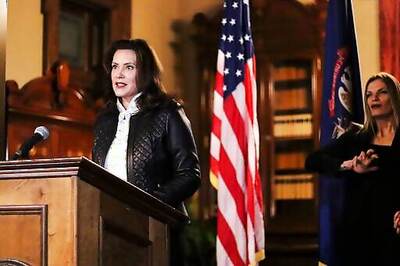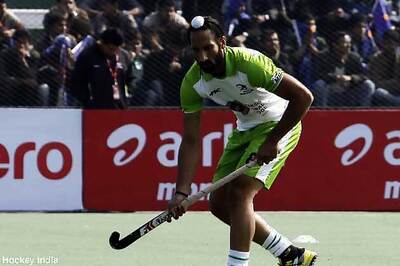
views
In the midst of Israel’s ‘war to end all wars’- the military campaign in Gaza to finish Hamas – a proposed legislation has the Zionist country in ferment. The matter has reached a tipping point with Pnina Tamano-Shata, a Member of the Knesset, representing the National Unity Party, a part of the ruling coalition, submitting a bill to dissolve the 25th Knesset, and have fresh elections with broad consensus by October. At the heart of the debate is a draft bill pertaining to extending military conscription to Haredim, an ultra-Orthodox Jewish community that conventionally refuses to participate in Israel’s military defence.
All Israeli resident citizens, both male and female, are obliged to serve in the military for a period of 24 to 32 months. The actual service length might vary according to the recruit’s age, gender or professional training in medicine/dentistry. The ultra-Orthodox Haredi Jews, in addition to Israeli Arabs, are exempted from the compulsory draft. Though there is no specific law in force to exempt Haredi Jews, they are permitted a one-year deferral at a time, if they enroll themselves in yeshiva (Jewish religious seminaries) for the study of Torah. This convention has come down since the early days of Israel (estd. 1948) as per an understanding reached between the first Prime Minister Ben Gurion and leaders of the Haredim community.
A 2019 document from the US Law Library of Congress says that in consideration of the destruction of yeshiva in Europe due to the Holocaust, the goal of deferral was to prevent the closing of yeshiva in Israel due to their students being drafted into the armed forces. The situation improved within a few decades, and in 1998, a Supreme Court judgement held that religious schools were flourishing in Israel, and there was little reason to worry that the draft of yeshiva students into the armed forces would lead to the closure of those institutions.
However, politics almost always triumphs over principles when it comes to Israel’s coalition-based democracy. The general opinion is that Netanyahu is merely wasting time. He is trying to placate his coalition partners – the Shas Party and United Torah Judaism. These two political parties, representing the bulk of the Haredi community’s vote, together contribute 18 seats in the Knesset, which is vital for the survival of Benjamin Netanyahu’s government.
In May 2000, the Ehud Barak government saw two of its coalition partners viz. the secular Meretz party and ultra-Orthodox Shas party at loggerheads, over a budget cut to yeshiva. Meretz threatened to quit the coalition. Education Minister Yossi Sarid, belonging to Meretz, sobbed on camera even as mayors from around Israel requested to stay on. “What is my message to the children,” said Sarid, “that there are no limits, no principles” as reported by The Economist dated May 13, 2000 (P.49). Sarid had threatened to stop the budget for yeshiva, unless they decided to carry out administrative reforms. However, yeshiva are pocket boroughs of the Shas Party, which commanded 17 seats in the Knesset as against Meretz’s 10. Thus, Meretz had to quit Barak’s cabinet.
However, the Shas Party also left within a month, though over a different issue. Barak survived a no-confidence motion in the Knesset by a slender margin of seven as he departed to Camp David for Mid-East Peace Talks in July 2000.
The Tal Law (2002) was an attempt to provide a statutory authorisation to the Minister of Defence to approve yeshiva students’ draft deferments for a period limited to five years. However, a decade later, in February 2012, the Supreme Court struck down the Tal Law as unconstitutional. Thus, there is a legal vacuum on the subject.
The draft bill in question has divided the government as much as the country. His critics see Benjamin Netanyahu as trying to build a halfway house that would not fulfill the actual needs of the Israel Defence Forces (IDF). The original bill was introduced by Benjamin “Benny” Gantz, the then defence minister, in the government of Naftali Bennett in August 2022. The bill was not targeted at Haredi Jews specifically, but intended to lay down a wider “Israeli Service Plan”, which would oblige all sectors of Israeli society to conduct national service in some form or the other.
The bill, which passed the first reading, lowered the conscription age for ultra-Orthodox to 21 years, but for a maximum of two years. According to it, a 21-year-old Haredi could join the national emergency and rescue services and receive vocational training. This measure would have also equipped the Haredi youths to integrate with the job market later.
According to proposed changes in the bill, the exemption age would rise to 22 years and then to 23 a year later. On the other hand, the budget for yeshiva would be cut by 20 per cent in the beginning. This would be followed by more significant cuts, but only if the recruitment targets fall short for successive years. These targets are 15 per cent (of students from yeshiva background), 25 per cent by 2030, and 35 per cent from 2036. The proposal allows two recruitment routes for the Haredi community to join the IDF: a three-week shortened service or a three-month service, after which soldiers transfer to reserved service.
Both Defence Minister Yoav Gallant, and Benny Gantz, the proposer of the original bill (2022) (now a minister without portfolio in Netanyahu cabinet), have expressed outrage with the current bill. They find the bill unrealistic, which fails to meet the gap between the demand and supply. The operational demands of the IDF have surged since the beginning of the campaign in Gaza last October. That the ultra-Orthodox Haredis would evade the obligation to defend the state, whose patronage they liberally enjoy, has left much of Israel fuming.
II
While Hamas, deeply inspired by Islamic theology, is overtly committed to the destruction of Israel, it is paradoxical that ultra-Orthodox Jews shirk from their responsibility of defending the Jewish state. This might prove that while Islam is a militarised religion, Judaism is essentially a peaceful creed. “And they shall beat their swords into ploughshares, and spears into pruning hooks; nation shall not lift up sword against nation, neither shall they learn war anymore” (Isiah 2:4), says the Old Testament. This verse inspired Evgeny Vuchetich (1908-1974) to sculpt his famous bronze statue which stands on the ground outside of the United Nations Building in New York. It was gifted by the USSR to the global body in December, 1959. Even the godless USSR could not ignore the message contained in the Old Testament.
The ultra-Orthodox Jews claim that reading the Torah, or the first five books of the Hebrew Bible pertaining to Jewish law, is more important than serving in the armed forces. They argue that reciting the Torah in times of war protects the nation. This argument appears not only illogical but also disingenuous according to the standards of the Bible itself. The God of Old Testament did not allow the priestly classes a leave of absence from the battlefield. Where the Pentateuch of Torah viz. Genesis, Exodus, Leviticus, Numbers and Deuteronomy cease, the active duty of Torah scholars begins, that is in the Book of Joshua. The Levitical priests, who were ordained as teachers of law, carried the Ark of the Covenant, the most sacred relic in the Hebrew Bible, when Israelites under the leadership of Joshua began the final assault to wrest the Holy Land after wandering in the deserts for forty years.
In a willing suspension of disbelief, one feels amazed that when the Levitical priests, bearing the Ark of Covenant which contained the inscribed version of the Torah, dipped their feet into the river Jordan, the river stopped its flow and its water piled up in a heap, so that the Israelites could pass over through the dry bed of the river. Thereafter when Joshua, the leader of Israelites, mounted a campaign on the walled city of Jericho, seven priests blowing shofar (trumpet made from ram’s horn) walked in front of the Levitical priests who carried the Ark of Covenant, while the rest followed them in utter silence. This routine continued for six days, as per instructions of the God of Old Testament, until on the seventh after the blowing of the shofar, the Israelites together gave a loud shout, and the walls of Jericho fell down all at once (Joshua: 1-27).
That is as far as the scriptures go to prove that the God of Old Testament did not perceive an armchair role for practitioners of Torah in times of campaign. “Read, whilst you arm you; arm you, whilst you read” – the advice of Torquato Tasso in his epic poem Jerusalem Delivered (1581) might hold good for the ultra-Orthodox Jews.
The writer is author of the book ‘The Microphone Men: How Orators Created a Modern India’ (2019) and an independent researcher based in New Delhi. Views expressed in the above piece are personal and solely those of the author. They do not necessarily reflect News18’s views.


















Comments
0 comment